The Art of Measurement: Essential KPIs for Tracking Digital Marketing Success
Introduction
In the dynamic world of digital marketing, tracking the return on investment (ROI) is often a major challenge for businesses. With so many different channels and strategies, it can be overwhelming to identify what works and what doesn’t. This is where Key Performance Indicators (KPIs) come into play. KPIs provide measurable values that demonstrate how effectively a company is achieving its key business objectives. In this blog post, we will delve into the essential KPIs for tracking digital marketing success across various channels such as SEO, social media, and PPC advertising. We’ll explain how to measure these KPIs and use the data to optimize your campaigns for better results.
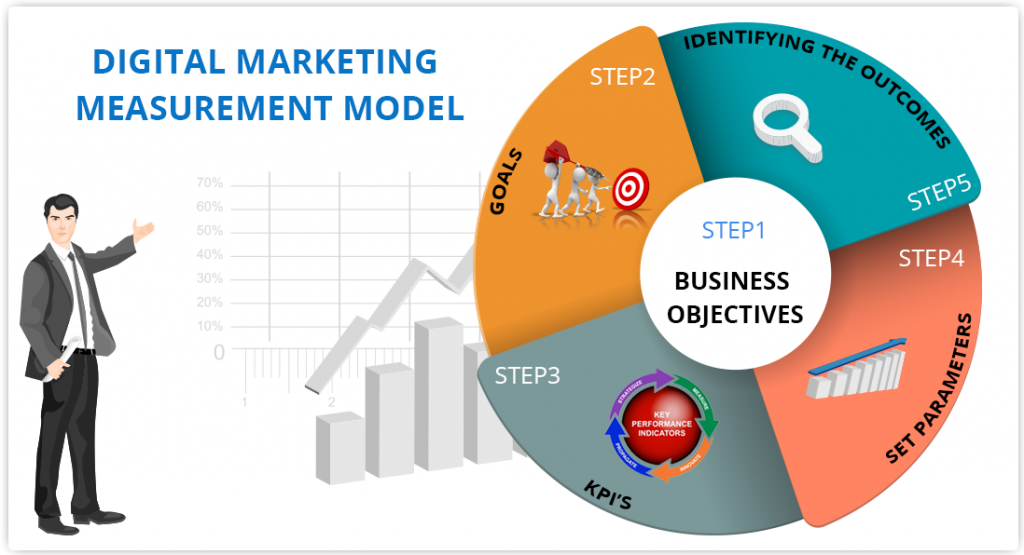
Index
- Understanding KPIs in Digital Marketing
- SEO KPIs
- Social Media KPIs
- PPC Advertising KPIs
- How to Measure and Track KPIs
- Using KPIs to Optimize Campaigns
- Frequently Asked Questions
- Conclusion: Mastering the Art of Measurement
Understanding KPIs in Digital Marketing
Key Performance Indicators (KPIs) are metrics used to evaluate the success of various aspects of your digital marketing efforts. They provide insights into the effectiveness of your strategies, helping you make data-driven decisions.
![]()
Why KPIs Matter
- Measure Success: KPIs help you determine whether you are achieving your marketing goals.
- Identify Areas for Improvement: They highlight where your campaigns are underperforming.
- Optimize Budget Allocation: KPIs guide you in allocating resources to the most effective strategies.
- Demonstrate ROI: They provide concrete data to justify marketing spend and strategy adjustments.
Common Types of KPIs
- Quantitative KPIs: Numerical metrics such as website traffic, conversion rates, and revenue.
- Qualitative KPIs: Non-numerical metrics such as customer satisfaction and brand perception.
SEO KPIs
Search Engine Optimization (SEO) is crucial for driving organic traffic to your website. Tracking the right KPIs helps you understand the effectiveness of your SEO efforts.
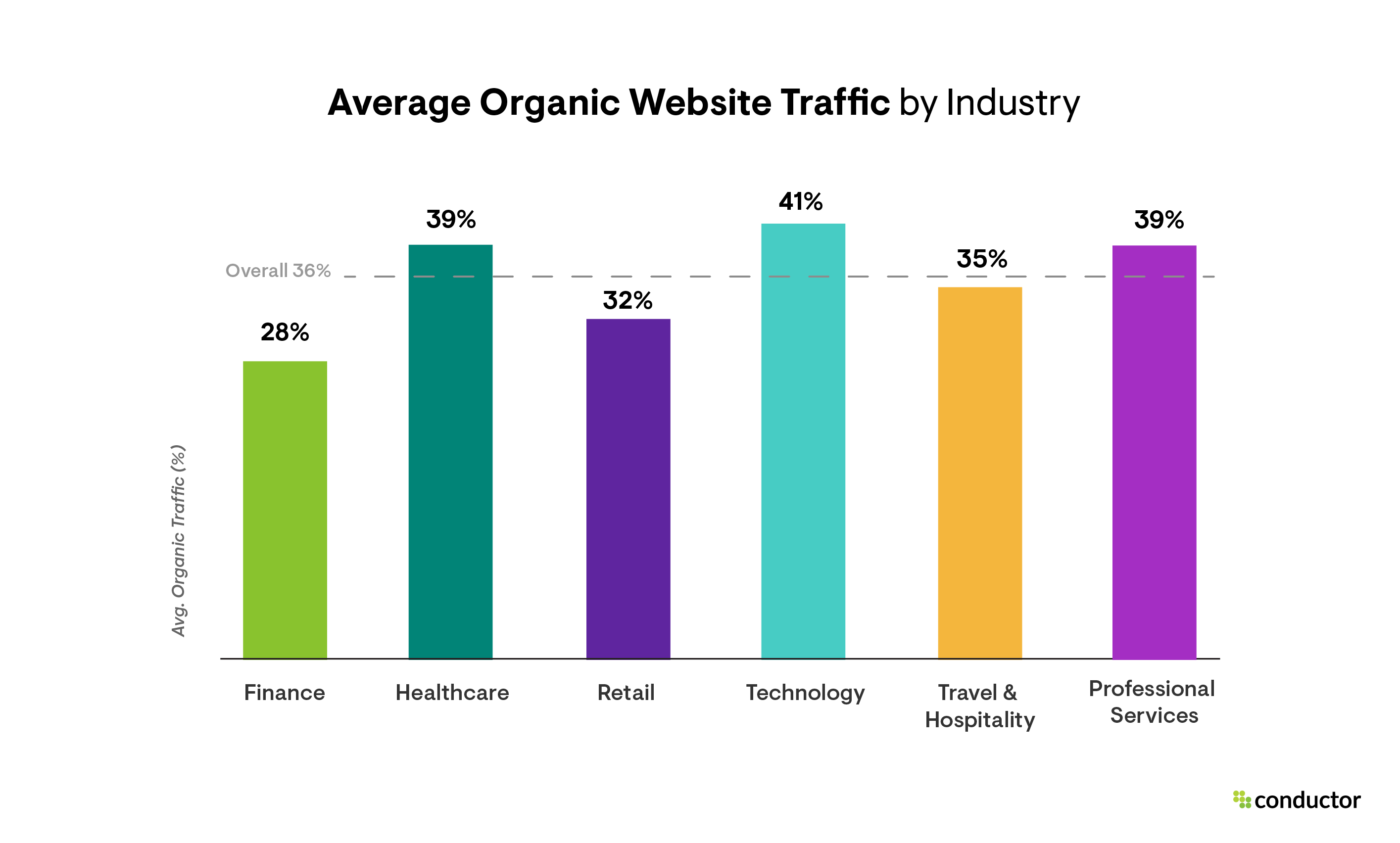
Essential SEO KPIs
- Organic Traffic: Measures the number of visitors coming from search engines.
- Keyword Rankings: Tracks your website’s position for specific keywords.
- Backlinks: Indicates the number and quality of inbound links pointing to your site.
- Bounce Rate: Measures the percentage of visitors who leave your site after viewing only one page.
- Domain Authority: A score that predicts how well a website will rank on search engine result pages (SERPs).
How to Measure SEO KPIs
- Google Analytics: Provides detailed insights into organic traffic, bounce rate, and user behavior.
- Google Search Console: Offers data on keyword rankings, backlinks, and search queries.
- SEO Tools: Platforms like Ahrefs and SEMrush help track domain authority and backlink profiles.
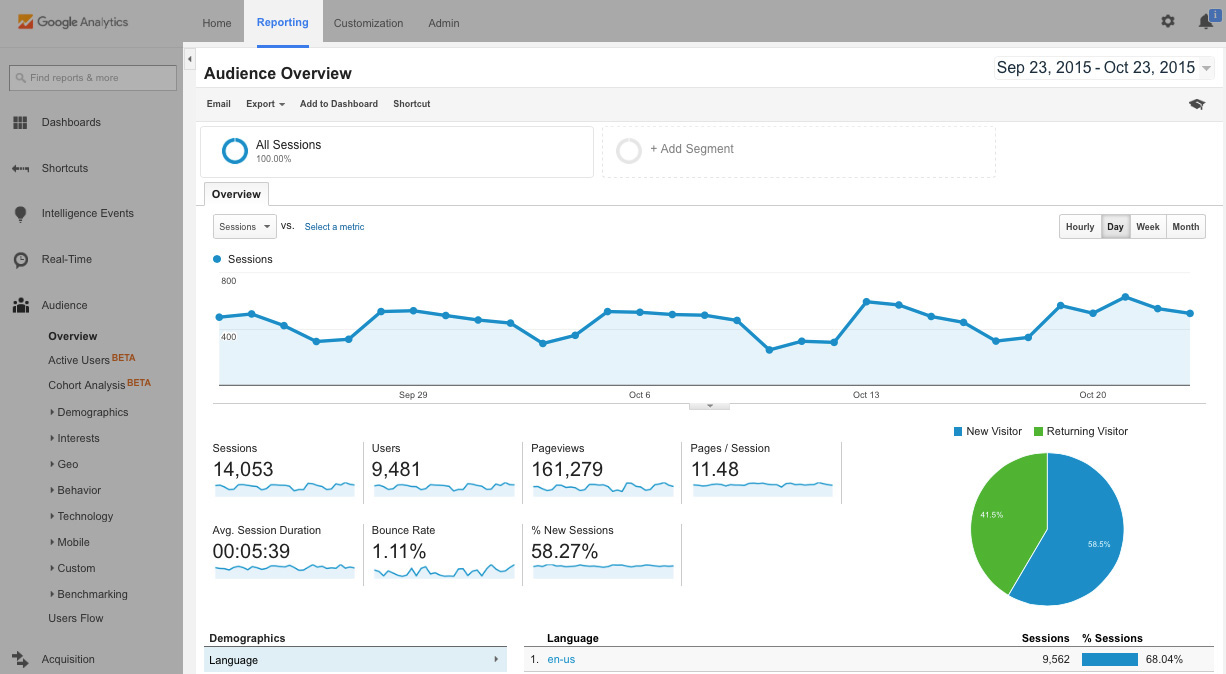
Social Media KPIs
Social media marketing is vital for brand awareness, engagement, and driving traffic. Understanding social media KPIs can help you gauge the effectiveness of your social strategies.
![]()
Essential Social Media KPIs
- Engagement Rate: Measures interactions (likes, comments, shares) relative to your total followers.
- Reach: Indicates the total number of unique users who have seen your content.
- Impressions: Counts how many times your content has been displayed.
- Follower Growth: Tracks the increase in your social media followers over time.
- Click-Through Rate (CTR): Measures the percentage of users who click on your links.
How to Measure Social Media KPIs
- Platform Analytics: Use built-in analytics tools on platforms like Facebook Insights, Twitter Analytics, and Instagram Insights.
- Social Media Management Tools: Tools like Hootsuite and Sprout Social provide comprehensive analytics and reporting.
Space for Image: Insert a screenshot of Facebook Insights showing engagement metrics.
PPC Advertising KPIs
Pay-Per-Click (PPC) advertising is a highly measurable channel. Tracking the right KPIs can help you optimize your ad spend and improve campaign performance.

Essential PPC KPIs
- Click-Through Rate (CTR): Measures the percentage of people who click on your ad after seeing it.
- Cost Per Click (CPC): Indicates the average cost you pay for each click on your ad.
- Conversion Rate: Measures the percentage of clicks that result in a desired action (e.g., purchase, sign-up).
- Cost Per Acquisition (CPA): Indicates the cost to acquire a customer through your PPC campaign.
- Return on Ad Spend (ROAS): Measures the revenue generated for every dollar spent on PPC.
How to Measure PPC KPIs
- Google Ads: Provides detailed metrics on CTR, CPC, conversions, and ROAS.
- Social Media Ads: Platforms like Facebook Ads and LinkedIn Ads offer analytics for their PPC campaigns.
- Analytics Tools: Use tools like Google Analytics to track conversions and CPA.
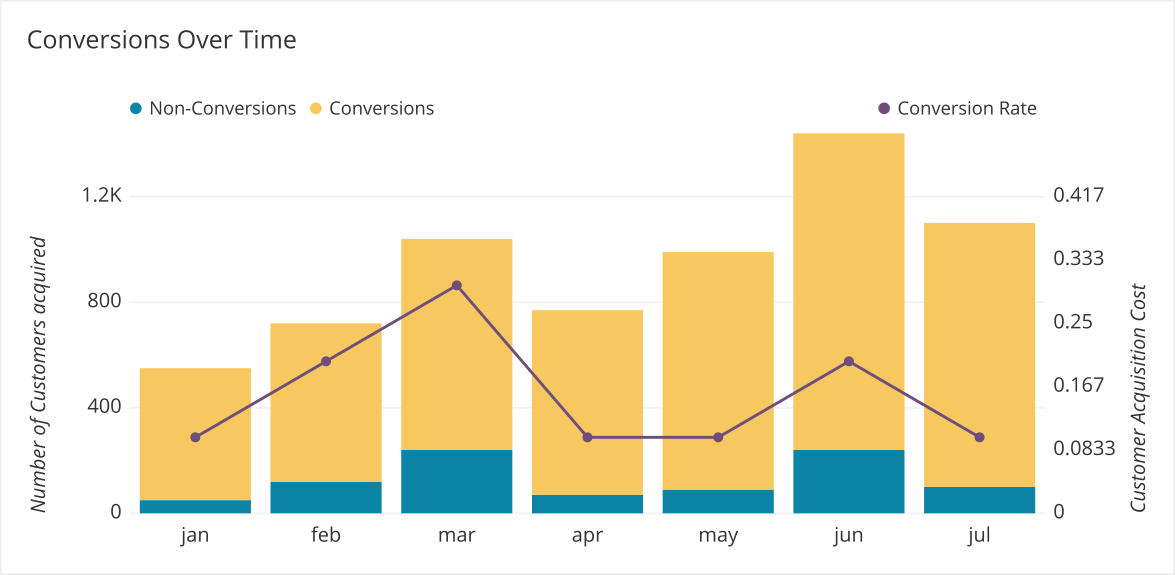
How to Measure and Track KPIs
Tracking KPIs involves collecting data from various tools and platforms, analyzing it, and making informed decisions.
Steps to Measure and Track KPIs
- Define Your Goals: Clearly outline what you want to achieve with your marketing efforts.
- Select Relevant KPIs: Choose KPIs that align with your goals and marketing channels.
- Use Analytics Tools: Leverage tools like Google Analytics, social media analytics, and SEO platforms to gather data.
- Create Dashboards: Use tools like Google Data Studio or Excel to create dashboards that visualize your KPIs.
- Regular Reporting: Establish a routine for reporting and reviewing your KPIs to track progress and identify trends.

Using KPIs to Optimize Campaigns
Once you have measured your KPIs, the next step is to use the data to optimize your campaigns.
Steps to Optimize Campaigns
- Analyze Performance: Identify areas where your campaigns are underperforming.
- Adjust Strategies: Modify your strategies based on KPI data. For example, if your CTR is low, try different ad copy or targeting.
- A/B Testing: Run A/B tests to compare different versions of your campaigns and see what works best.
- Continuous Improvement: Digital marketing is an ongoing process. Continuously monitor your KPIs and make adjustments to improve performance.

Frequently Asked Questions
- What are KPIs in digital marketing?
- KPIs are measurable values that help you track the success of your digital marketing efforts.
- Why are KPIs important?
- KPIs provide insights into the effectiveness of your strategies, helping you make data-driven decisions and optimize your marketing efforts.
- How do I choose the right KPIs?
- Choose KPIs that align with your business goals and marketing channels. Consider what metrics are most important for measuring success in those areas.
- What tools can I use to track KPIs?
- Use tools like Google Analytics, social media analytics platforms, SEO tools, and PPC ad platforms to track your KPIs.
- How often should I review my KPIs?
- Regularly review your KPIs, at least monthly, to track progress and make necessary adjustments to your strategies.
- What is a good CTR for PPC campaigns?
- A good CTR varies by industry and platform, but generally, a CTR of 2-5% is considered good.
- How can I improve my SEO KPIs?
- Improve your SEO KPIs by optimizing your website for keywords, building quality backlinks, and improving site speed and user experience.
- What is the difference between reach and impressions on social media?
- Reach refers to the total number of unique users who have seen your content, while impressions count how many times your content has been displayed.
- How can I lower my CPA in PPC campaigns?
- Lower your CPA by improving your ad targeting, optimizing your landing pages, and continuously refining your ad copy and bids.
- What is the most important KPI for digital marketing?
- The most important KPI varies by business and goals, but common ones include conversion rate, ROI, and customer acquisition cost.
Conclusion: Mastering the Art of Measurement
Mastering the art of measurement in digital marketing involves understanding and tracking the right KPIs to evaluate the success of your campaigns. By focusing on essential KPIs for SEO, social media, and PPC advertising, you can gain valuable insights into your marketing performance and make informed decisions to optimize your strategies.
Remember, the key to successful digital marketing is continuous improvement. Regularly review your KPIs, analyze the data, and make adjustments to stay ahead of the competition. Whether you are a seasoned marketer or just starting, understanding and utilizing KPIs will help you achieve your marketing goals and drive business growth.
Ready to take your digital marketing to the next level? Contact us today to learn how we can help you track and optimize your KPIs for maximum success.

By following these insights and leveraging the expertise of a professional agency, you can stay ahead in the ever-evolving world of digital marketing and ensure your business thrives in the future.
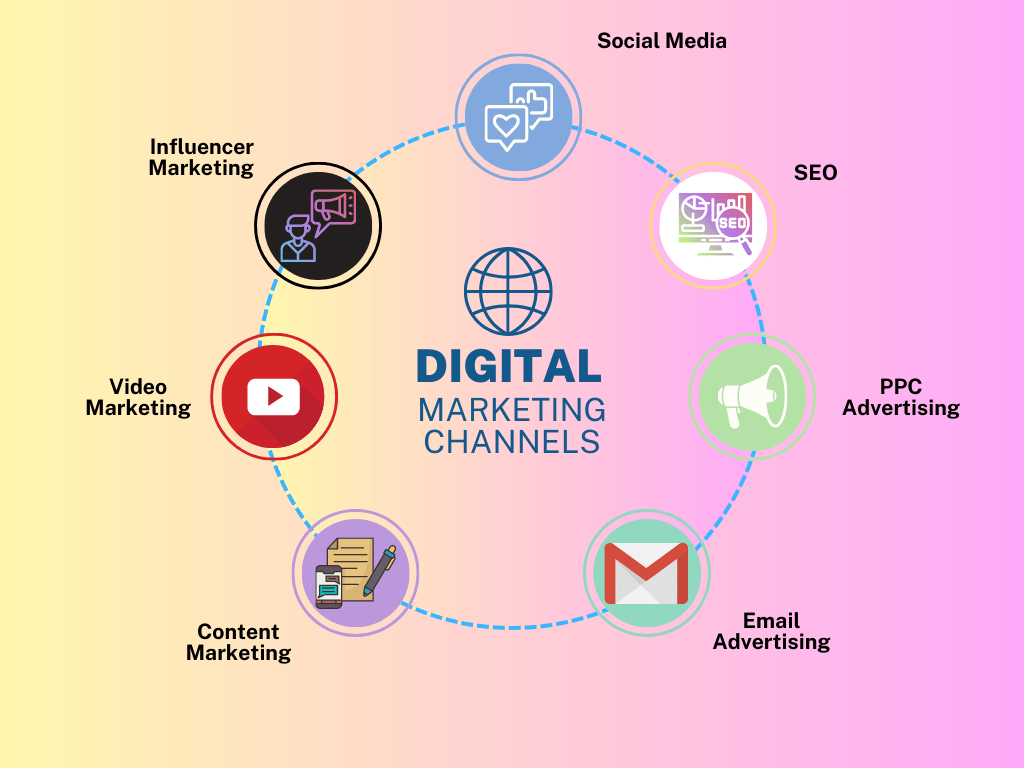
Summary of Key Points
- Understanding KPIs in Digital Marketing: KPIs are essential metrics that help measure the success of your marketing efforts.
- SEO KPIs: Key metrics include organic traffic, keyword rankings, backlinks, bounce rate, and domain authority.
- Social Media KPIs: Focus on engagement rate, reach, impressions, follower growth, and click-through rate.
- PPC Advertising KPIs: Important KPIs include click-through rate, cost per click, conversion rate, cost per acquisition, and return on ad spend.
- How to Measure and Track KPIs: Use tools like Google Analytics, social media analytics, and SEO platforms to gather and analyze data.
- Using KPIs to Optimize Campaigns: Regularly review KPIs, adjust strategies, conduct A/B testing, and strive for continuous improvement.
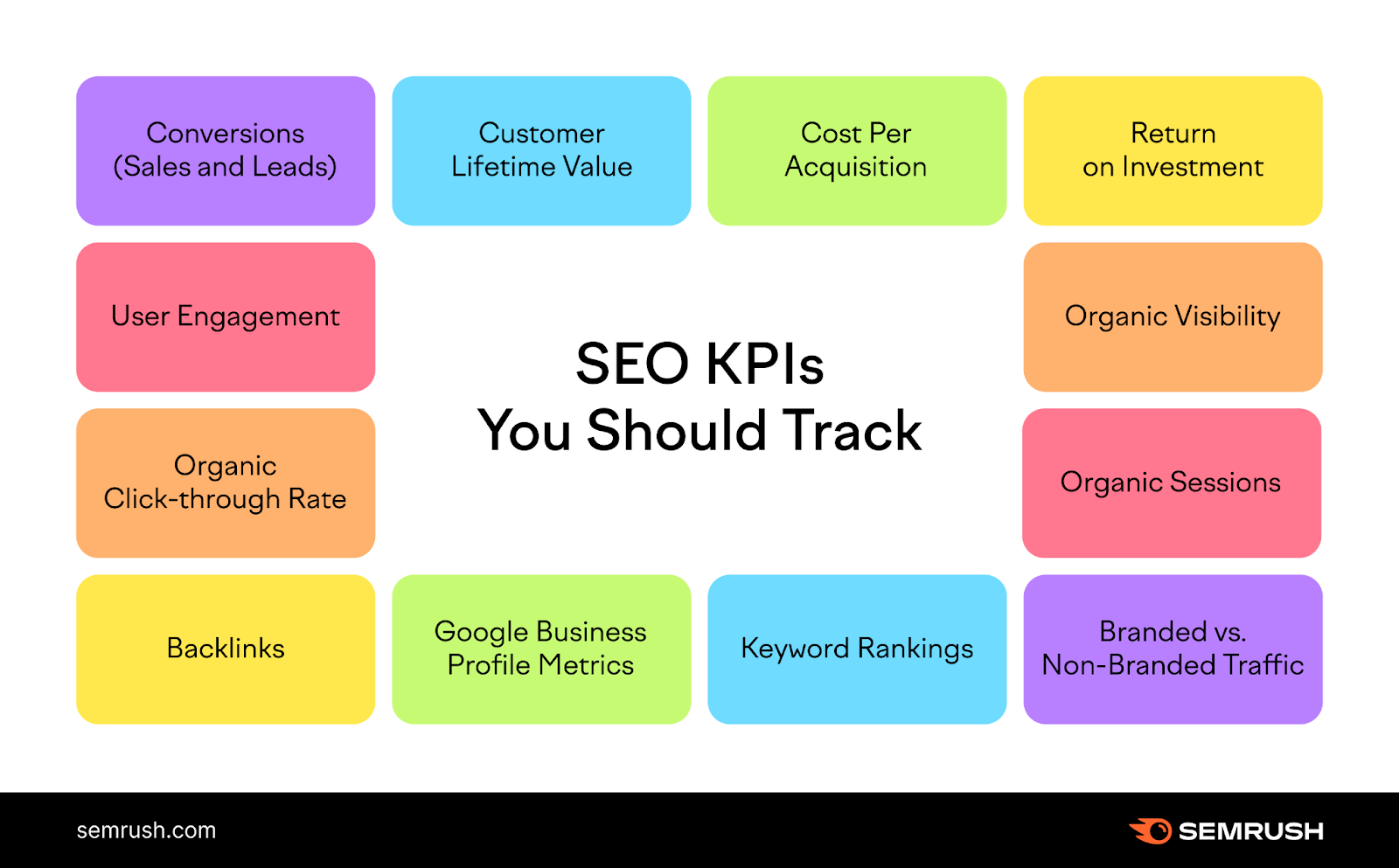
Final Thoughts
Tracking and optimizing your digital marketing efforts through KPIs is an ongoing process that requires diligence and adaptability. By understanding the importance of KPIs, knowing how to measure them, and using the data to optimize your campaigns, you can significantly enhance your marketing performance and achieve your business objectives.
Whether you’re a small business owner or a marketing professional, mastering the art of measurement will empower you to make data-driven decisions that drive growth and success. Remember, the key is to continuously monitor, analyze, and adjust your strategies based on the insights gained from your KPIs.
For those who find this process overwhelming or time-consuming, partnering with a professional marketing agency can be a game-changer. Our agency specializes in tracking and optimizing digital marketing KPIs, ensuring that your campaigns are not only effective but also aligned with your business goals.
Ready to master the art of measurement and achieve digital marketing success? Contact us today to learn how we can help you track and optimize your KPIs for maximum impact.

By staying informed and proactive in tracking your digital marketing KPIs, you’ll be well-equipped to navigate the complexities of the digital landscape and drive your business towards continued success.

I have been browsing online more than three hours today yet I never found any interesting article like yours It is pretty worth enough for me In my view if all website owners and bloggers made good content as you did the internet will be a lot more useful than ever before